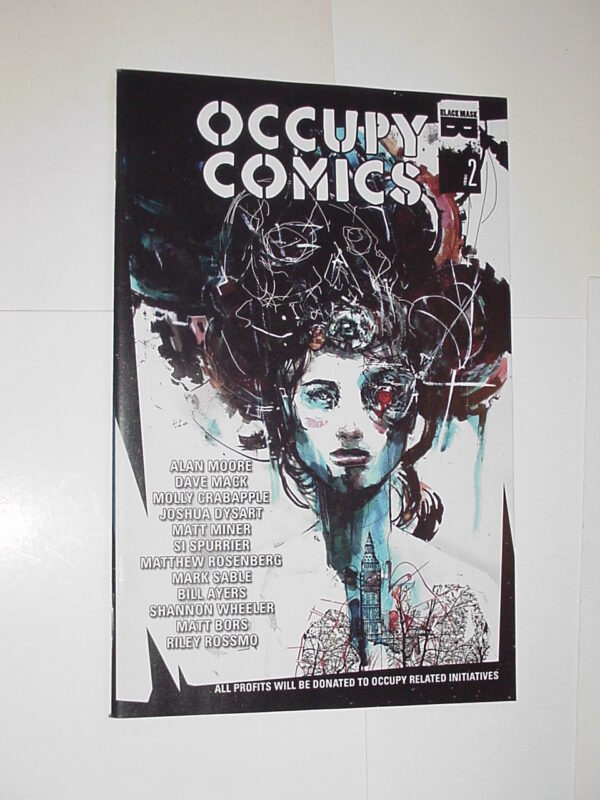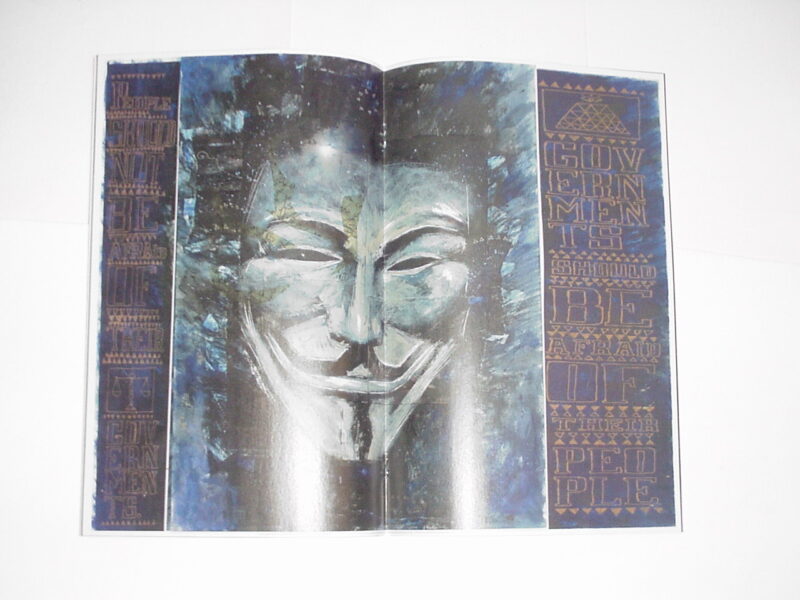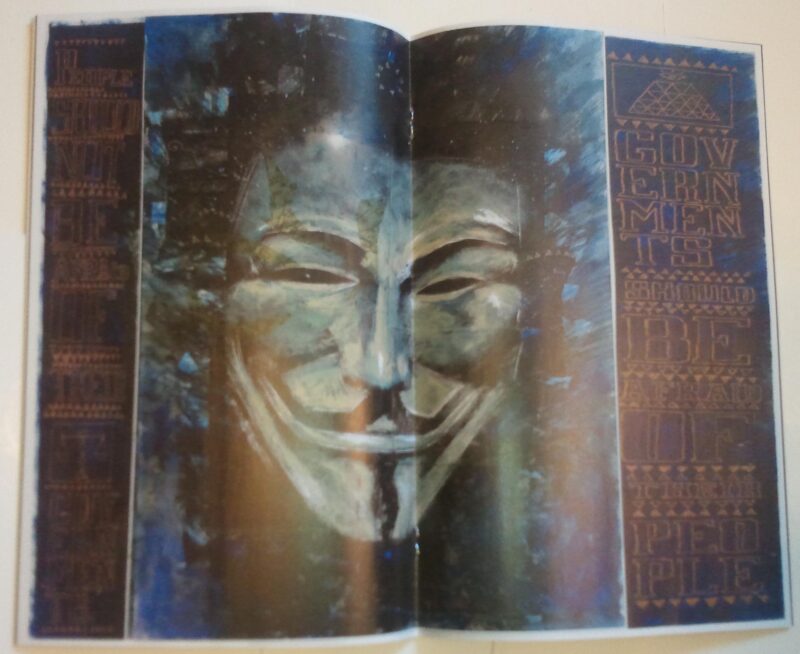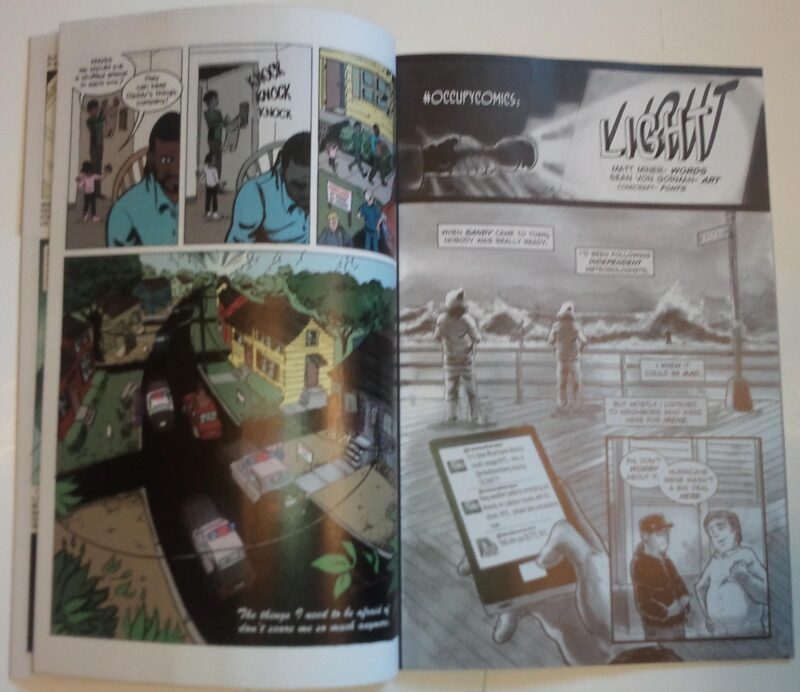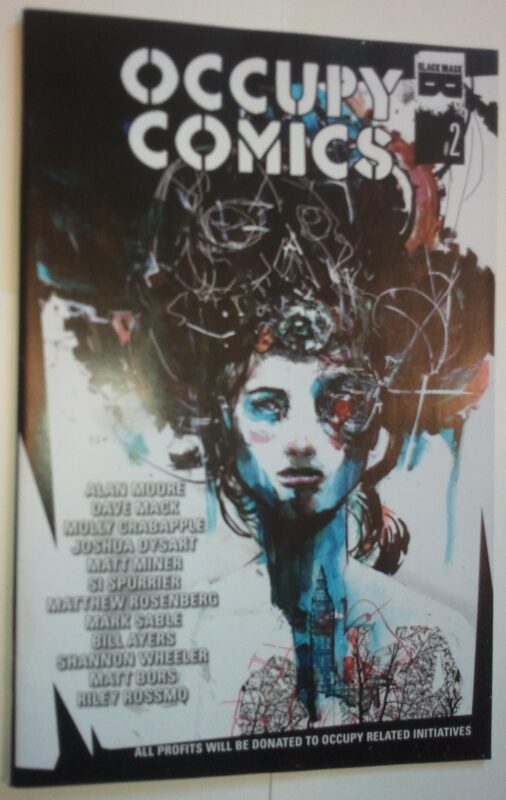Occupy Comics 2 NM Alan Moore David Mack Black Mask Wallstreet
$69.99
Description
Features an Anonymous poster by David Mack and twelve page text piece written by Alan Moore detailing the connection between comics and counterculture! OCCUPY COMICS #2 (BLACK MASK COMICS) This once-in-a-lifetime collaboration of more than 50 comics pros is a celebration of Occupy and a time-capsule of the movement’s themes. The organizers and creators are donating all their revenue after costs to Occupy-related efforts and initiatives. [(W) Alan Moore & Various (A) Ronald Wimberly & Various (CA) Riley Rossmo] “When Occupy Comics first occurred to me, there was a media blackout on Occupy Wall Street so exposure for the protests and related issues seemed important. Since then, it’s become a media circus. Exposure is no longer the necessity. As a result, we’re now developing Occupy Comics into more of a fundraising project to support the protesters. The Tea Party started out as small groups of angry citizens with a non-partisan populist message, but it was infused with cash from political groups who steered it into what it has become. The Occupy movement will need support as winter approaches, and if that financial support can come from grassroots fundraising rather than political groups it may help keep the message non-partisan.” The mainstream comics industry has spawned another alternative supergroup. 30 Days of Night creator Steve Niles and Epitaph Records owner and Bad Religion guitarist Brett Gurewitz have banded together with Halo-8s Matt Pizzolo to form Black Mask Studios with the stated aim of disrupting the comics market. “It’s become this monopolized walled garden where you’re only allowed to grow two things: superheroes and movie treatments,” Pizzolo told Wired via e-mail. “We’re going to open new space outside the entrenched market where we can cultivate more subversive experimental and literary comics to reach broader audiences.” Inspired by the controversial but influential 1960s anarchists Up Against the Wall Motherf*****s and Edgar Allen Poe’s class-conscious gothic short “The Masque of the Red Death,” Black Mask Studios was teased Sunday during WonderCon’s spotlight panel on Niles, who serves as creative director. Pizzolo runs the biz as president, and Gurewitz’s Epitaph Records empowers the indie operation. Black Mask’s first order of business will be the benefit compilation Occupy Comics. Initiated last year by organizer Pizzolo’s Kickstarter project, Occupy Comics features visual and written contributions from Molly Crabapple, Mike Allred, Douglas Rushkoff and many more, including visionaries Alan Moore and David Lloyd, whose V For Vendetta has supplied the worldwide Occupy and Anonymous movements with their anti-fascist iconography and ideology. “We share that DIY approach; everything I know about business I learned in the New York hardcore scene.” “Comics and punk have a lot in common, being transgressive art forms with under-appreciated potential for social influence,” Gurewitz said in an e-mail to Wired. “Leveraging Matt’s brilliant Occupy Comics model with Black Mask Studios might be disruptive, in a really good way, for both artists and fans.” Black Mask plans to plumb its heavily internetworked fan base to release physical and digital comics, as well as merchandise. It’s also invested in evangelizing the cause of ethical ownership. After watching Ghost Rider co-creator Gary Friedrich lose a countersuit from Marvel Comics for a share of his flaming hellspawn’s two blockbuster films and DC Comics boot up Before Watchmen against the wishes of Watchmen co-creator Moore — who told Wired last year that he was finally offered its rights if he agreed to “dopey prequels and sequels” — Pizzolo, Gurewitz and Niles decided to take creators rights in their own hands. Niles even spearheaded a fundraiser to save Friedrich’s home. “I’m really excited about this project,” Niles told Wired via e-mail. “Since the advent of the direct market and the disappearance of the spinner rack, I’ve watched comics sales fall due to lack of exposure.” Pizzolo hopes that Black Mask can help reverse that process, or at least inject its hybrid physical and digital model with the type of challenging comics that seemed to ceaselessly replicate up until the turn of the 21st century. The fact that they’re a trio of what Pizzolo called “old punks” should help matters. “We share that DIY approach; everything I know about business I learned in the New York hardcore scene,” he explained. “We designed the company to be more creator-friendly than the majors, but less winner-take-all than the indies. We want to build a coalition where everyone can do their own thing but interests are aligned so we’re all in it together.” The legendary and outspoken writer behind Watchmen, V for Vendetta, From Hell, and many more of the most memorable comic book stories of the last 30+ years, Alan Moore‘s feelings on creators’ rights are well documented. He’s continued to discuss his views at length in Occupy Comics, Black Mask Studios’ Kickstarter-funded anthology inspired by the Occupy Wall Street movement, opining mainly on the comics industry’s complex historical relationship with counterculture and corporations. Titled “Buster Brown At The Barricades,” much of the latest chapter focuses specifically on Superman creators Jerry Siegel and Joe Shuster, and their lifelong struggle for credit and control of the Man of Steel they created and sold for just $130 in the 1930s. No matter your feelings on Moore himself or the Siegel/Shuster legal battles with DC Comics (which seemed to had come to a definitive end recently), Moore’s written a thoughtful essay that’s well worth your time, particularly as fandom celebrates the 75th anniversary of Superman’s initial publication and the release of the new Man of Steel film. Like the first issue, “Occupy Comics” #2 is an anthology of short works by various artists and writers whom the Occupy movement has touched in one way or another. The comics are universally personal, and tell “slice of life” stories ranging from half a page to four pages or so. There are also a few pinups, including one from Molly Crabapple, the breakout artist of the movement. As might be expected, the indie comics world is well-represented here, with a lack of big creators — other than, of course, the well-publicized marquee appearance of Alan Moore. Joshua Dysart, perhaps best known for his work on “Swamp Thing” and “The Unknown Soldier” for Vertigo, contributes a few pages of text on the major players in the world of financial government. But Moore is clearly the draw here, and so readers may be disappointed to find that his contribution is limited to parts three and four of the essay “Buster Brown at the Barricades,” which is being serialized across the run of “Occupy Comics.” The essay is an enlightening look at comics as counter-culture, but feels only tangentially related to the Occupy movement, as it only covers the middle part of the 20th century, from the pulps through the Silver Age. No doubt Moore should be commended for lending his personal brand to an upstart project such as this, but it would have been nice to see him engage with either the subject or the format a bit more. As for the actual comics, despite being printed on slick paper, they have the feel of an indie comics anthology that one might find hand-photocopied and stapled together in a local coffee shop. The level of professionalism varies, in both the writing and the art, but each vignette has the honesty and forthrightness of a personal story. The most tightly-built of the comics, “The One Percent Solution” by Mark Sable and Megan Hutchison, packs a particularly hefty dose of ironic symbolism into only four pages. In contrast, the moving “Single Family Home” by Matthew Rosenberg, Patrick Kindlon, and Joe Ruff has a simple, straightforward style that makes its tale of foreclosure into a blank slate onto which can be projected every family that has gone through that personal tragedy. It’s no accident that these two stories cover the opposite ends of the financial spectrum — in the lingo of the Occupiers, the 1% on one hand and the 99% on the other. The wealthy day trader of “The One Percent Solution” has nothing better to do with his time and money than blowing up cows with a rocket launcher, and his story is told with a layer of pop-culture detachment; the struggling married couple of “Single Family Home” get into a bitter fight over the cost of a small birthday present for their daughter, and there’s no room in their lives for a rich boy’s post-modernism. Ultimately, the wide net it casts is the strength of “Occupy Comics” #2. The dry text about government officials and comics history is interesting, in a skip-it-the-first-time-and-go-back-to-read-it-later kind of way. But the clear goal, and the achievement, of this issue is to put faces on all the stories of the Occupy movement. Even the pin-ups focus on people and faces. As a visual medium, comics have a visceral immediacy that prose can’t touch– it’s one thing to say that Gideon looked defeated and ashamed, and another thing entirely to see his face when the police knock on the door of his foreclosed home. Thus the more abstract story “New Thumbs” by Si Spurrier and Smudge, despite its professional quality, is less impactful, since it lacks a really human character for the reader to relate to. Overall, though, “Occupy Comics” #2 is quite an achievement. From its crowd-funded roots via Kickstarter, to the level of involvement from comics creators both indie and pro, to its appearance on the shelves of local comic shops despite a lack of major-publisher backing, “Occupy Comics” has clearly touched a nerve in at least part of the comics community. For that alone it’s worth checking out, but be sure to stay for the stories of the real people who would otherwise be voiceless.
0-45778022045
1st print. Near mint condition.
Related products
-
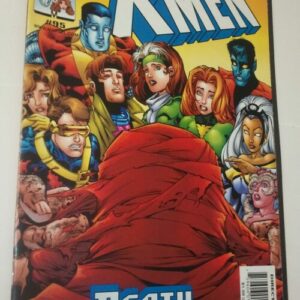
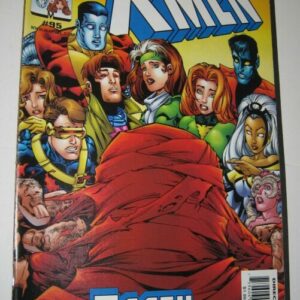
X-Men #95 NM Alan Davis 1st prnt 1st Fiz Skrull Secret Invasion MCU Disney+ Plus
$74.99 Add to cart -
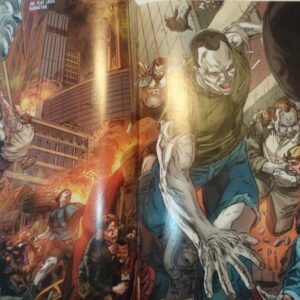
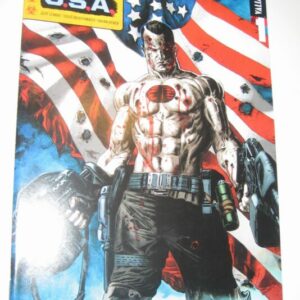
Bloodshot U.S.A. # 1 NM Cover B Jeff Lemire Doug Braithwaite 1st p Valiant Movie
$44.99 Add to cart -

Devil May Cry 1B NM CGI Cover Dreamwave Brad Mick Pat Lee Video Game Comic
$84.99 Add to cart -
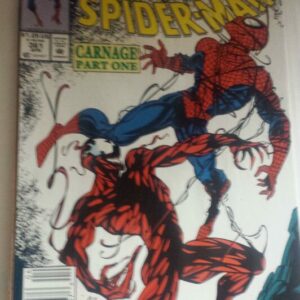
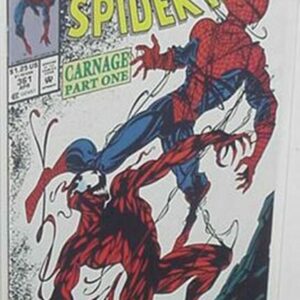
Amazing Spider-Man 361 NM vs Carnage Bagley Venom 2 Let There Be 1st print Movie
$394.99 Add to cart
